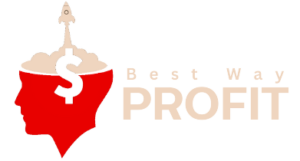As a single person navigating the realm of personal finance, mastering your money management skills is crucial for achieving financial empowerment. By understanding how to set achievable financial goals, track your expenses effectively, and prioritize savings, you can apply a solid foundation for your financial future. However, the journey to financial mastery continues beyond there. You must employ critical strategies and tools to ensure long-term economic stability and independence. Stay tuned to uncover the essential steps and insights that will empower you to take control of your finances and secure a prosperous future.
Financial Accountability and Support

When embarking on your journey towards financial mastery, collaborating with a supportive financial friend can help you achieve shared goals and resources. Financial friendships are crucial for accountability and encouragement during tough times.
By budgeting together, you can track expenses effectively, set common financial goals, and avoid unnecessary debt. Celebrating successes with your financial friend strengthens your bond and motivates both of you to stay on track.
During challenging moments, having someone to lean on can help you stay focused and resilient. Building a solid financial support system is as essential as managing money wisely.
Embrace the power of teamwork in achieving financial freedom.
Adequate Savings and Debt Management
To effectively manage your savings and debt, prioritize establishing consistent money habits and paying yourself first for savings. Regarding savings strategies, consider setting up automatic transfers to a separate account to ensure you regularly save a portion of your income.
Aim to build an emergency fund covering 3-6 months of expenses for financial security. For debt reduction, focus on paying off high-interest debts first and maintaining timely payments to avoid additional charges. Try to limit debt to essential items like car or home loans.
Credit Score Monitoring and Strategies
Monitoring and strategizing your credit score is essential for maintaining financial health and stability. Improving credit involves making timely payments, keeping credit card balances low, and avoiding opening multiple new accounts at once.
Strategic credit card use means using them responsibly, paying off the entire monthly balance, and taking advantage of rewards without overspending. It is crucial to regularly inspect your credit report for mistakes and signs of identity theft. Additionally, consider setting up payment reminders or automatic payments to ensure on-time payments.
Smart Investing and Retirement Planning
Consider implementing a diversified investment strategy and comprehensive retirement plan for effective financial planning and long-term stability. Start investing earlier to benefit from compounding interest and aim for early retirement.
Diversify investments across various asset types like stocks, bonds, and real estate to lower risk and maximize returns.
Prepare for your retirement journey by carefully estimating your future expenses, consistently contributing to your retirement accounts, and considering important factors such as healthcare costs and inflation.
Stay informed about investment options and market trends to make well-informed decisions. Seek advice from financial advisors when needed to align your investment portfolio with your financial plans.
Utilizing Financial Education Tools

Consider utilizing financial education tools to enhance your understanding and proficiency in managing your finances effectively.
Expense tracking apps can help you monitor where your money is going, allowing you to make informed decisions about your spending habits.
Setting up automated transfers allows you to streamline your savings process and ensure consistent contributions toward your financial goals.
These tools provide convenience and visibility into your financial situation, empowering you to manage your money effectively.
These resources can help you better understand your financial health and make strategic choices to secure your financial future.
Assume these tools as companions on your journey to financial freedom.
Building and Maintaining an Emergency Fund
To secure financial stability, prioritize building and maintaining an emergency fund to safeguard against unexpected expenses or income disruptions. Emergency fund essentials include saving for unforeseen situations and providing financial safety nets for peace of mind.
Start by setting a realistic goal of saving 3-6 months’ expenses regarding automating contributions to your emergency fund to ensure consistency. This fund works as a buffer during challenging times, preventing you from going into debt or dipping into long-term savings.
Prioritizing Debt Repayment Strategies

Start prioritizing your debt repayment strategies by identifying and tackling high-interest debts first. Consider using the debt snowball strategy, where you pay off your most minor debts first, then roll the amounts you paid on those debts into larger ones. This process can provide a sense of achievement and motivation as you see debts being paid off.
Alternatively, the debt avalanche approach involves paying off debts with the most elevated interest rates first, conserving your money on interest payments in the long run. Whichever method you choose, ensure you make timely payments to avoid accruing more debt.
Long-Term Financial Health Planning
How can you ensure your long-term financial health remains strong and secure?
When planning for long-term financial well-being, focus on retirement readiness and wealth accumulation. Start by estimating your retirement expenses and contributing regularly to retirement accounts.
Diversify your assets to reduce risk and maximize growth potential. When planning for retirement, consider factors like healthcare costs and inflation. Building a crisis fund is essential for financial security.
Avoiding excessive debt and prioritizing high-interest debts are critical steps in wealth accumulation. To optimize your financial strategies, seek advice from financial advisors.
Review and adjust your investment portfolios regularly to align with your long-term financial goals. By doing so, you can ensure a financially secure future.
Conclusion
In conclusion, mastering the critical aspects of personal finance is essential for achieving financial empowerment as a single person. You can secure long-term economic stability by taking control of your finances, setting clear goals, managing debt, monitoring your credit score, investing wisely, and planning for retirement.
Utilizing financial education tools and resources will further improve your financial literacy and authorize you to make informed decisions for your financial well-being. Start today and pave the way for a financially secure future.



